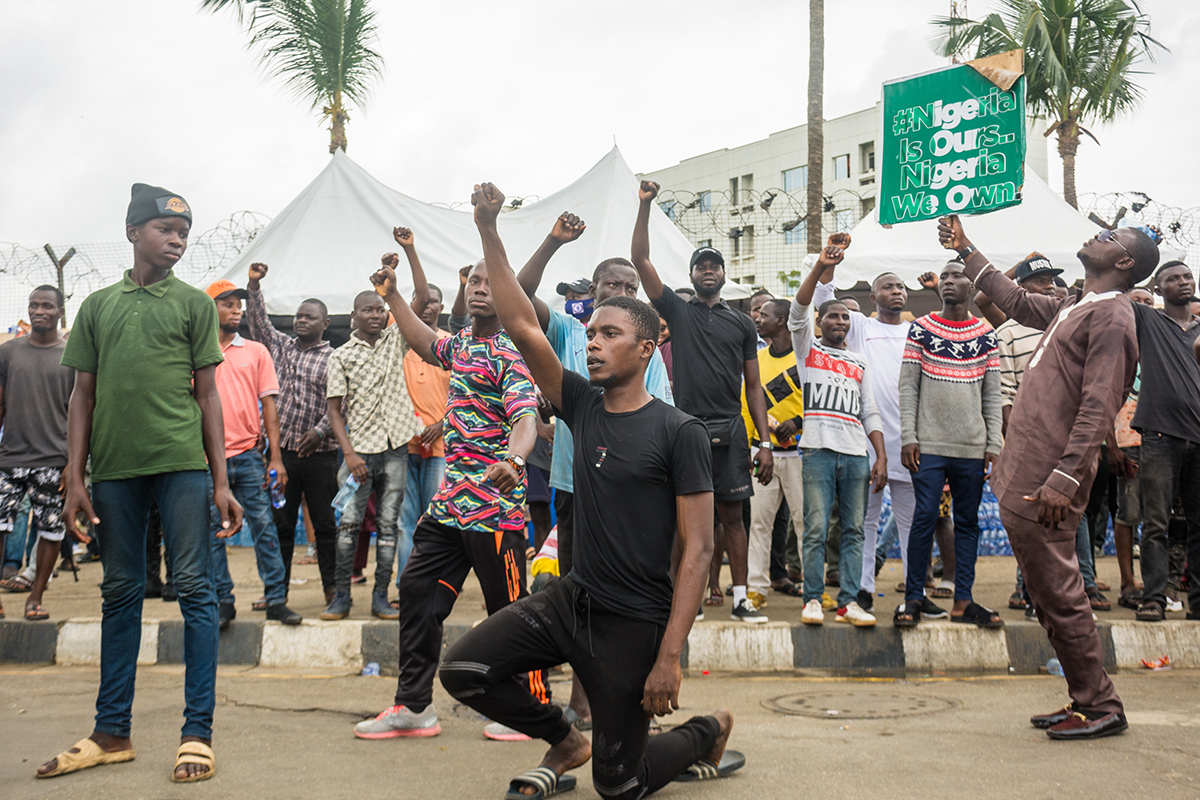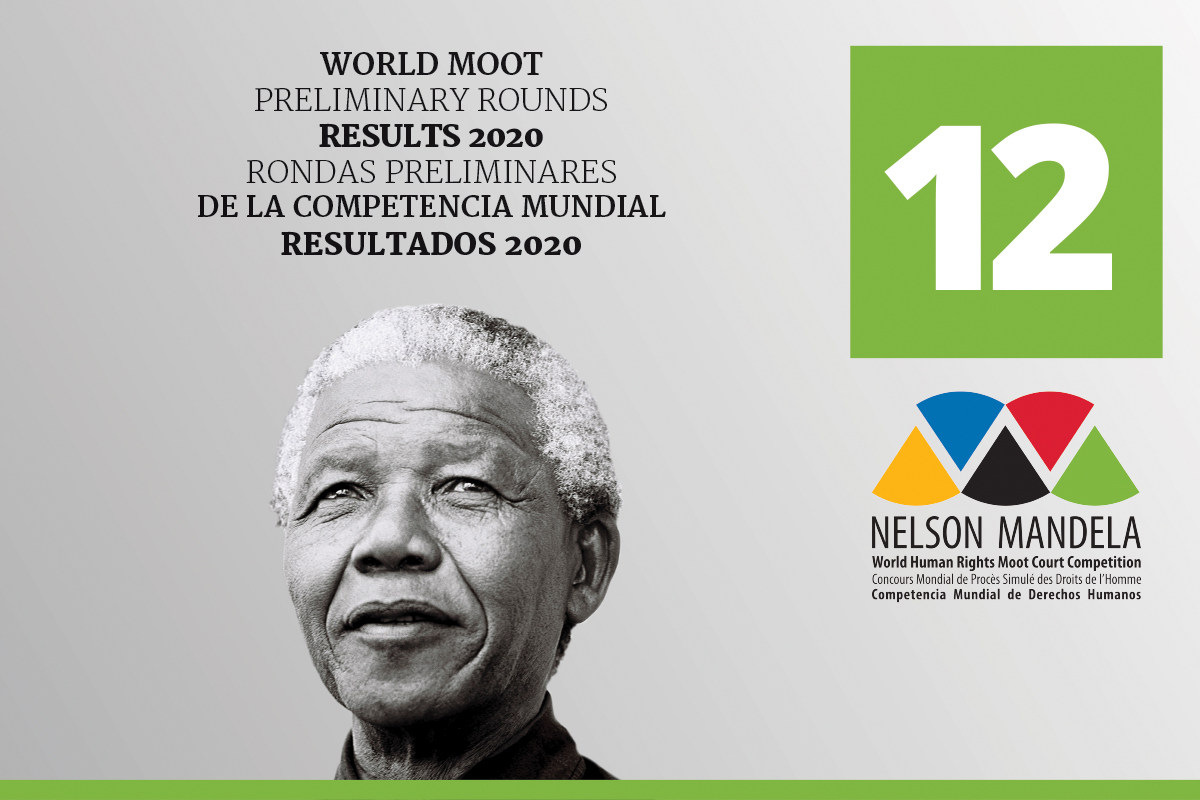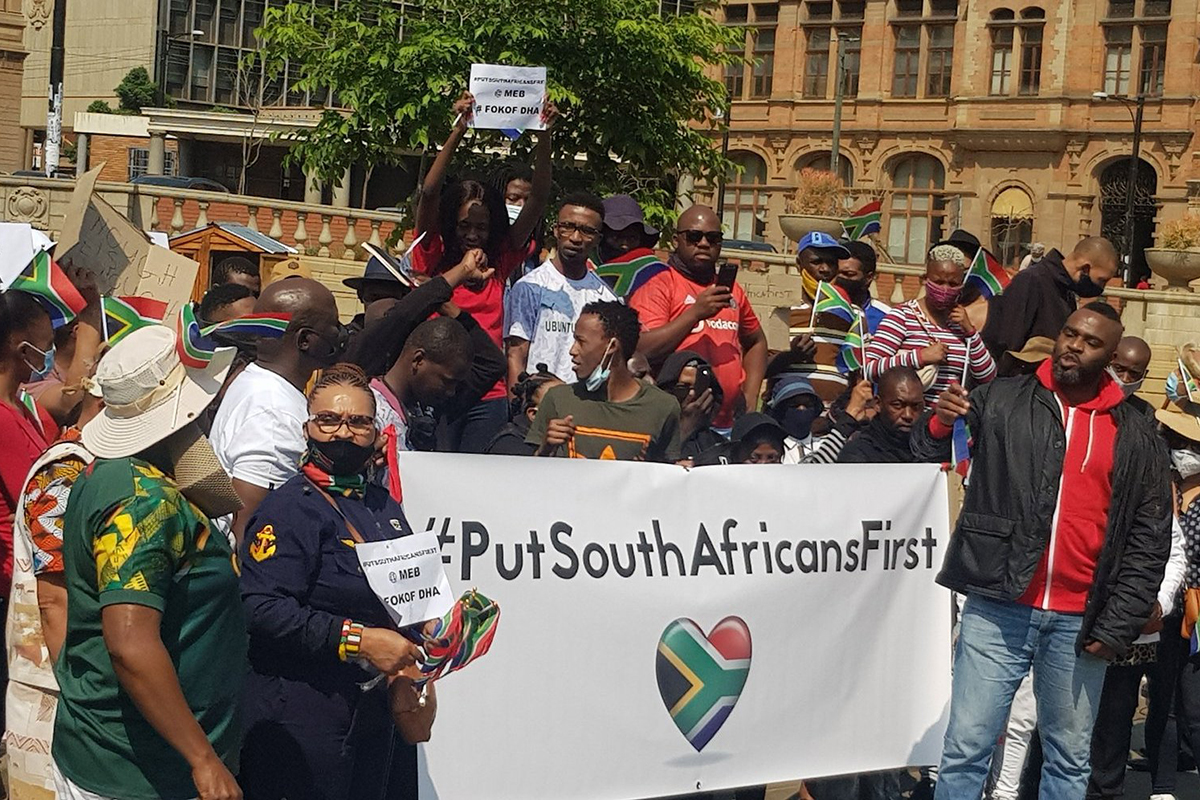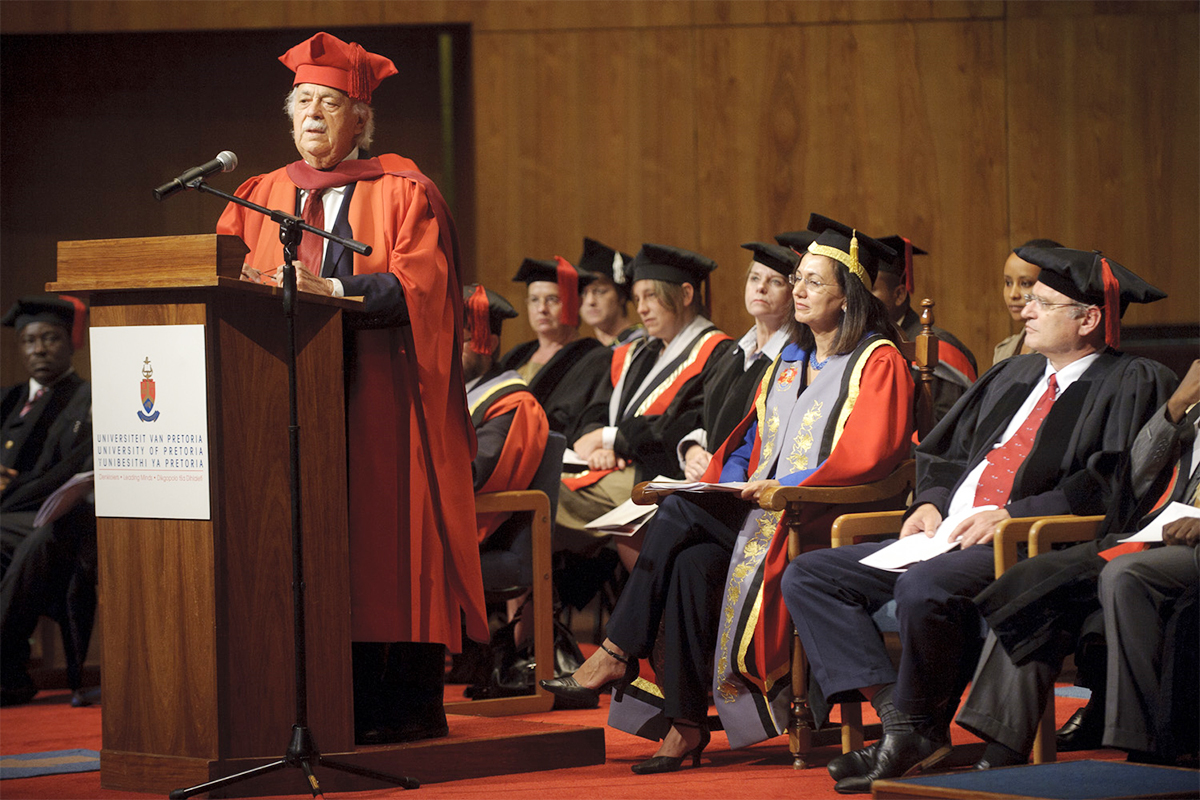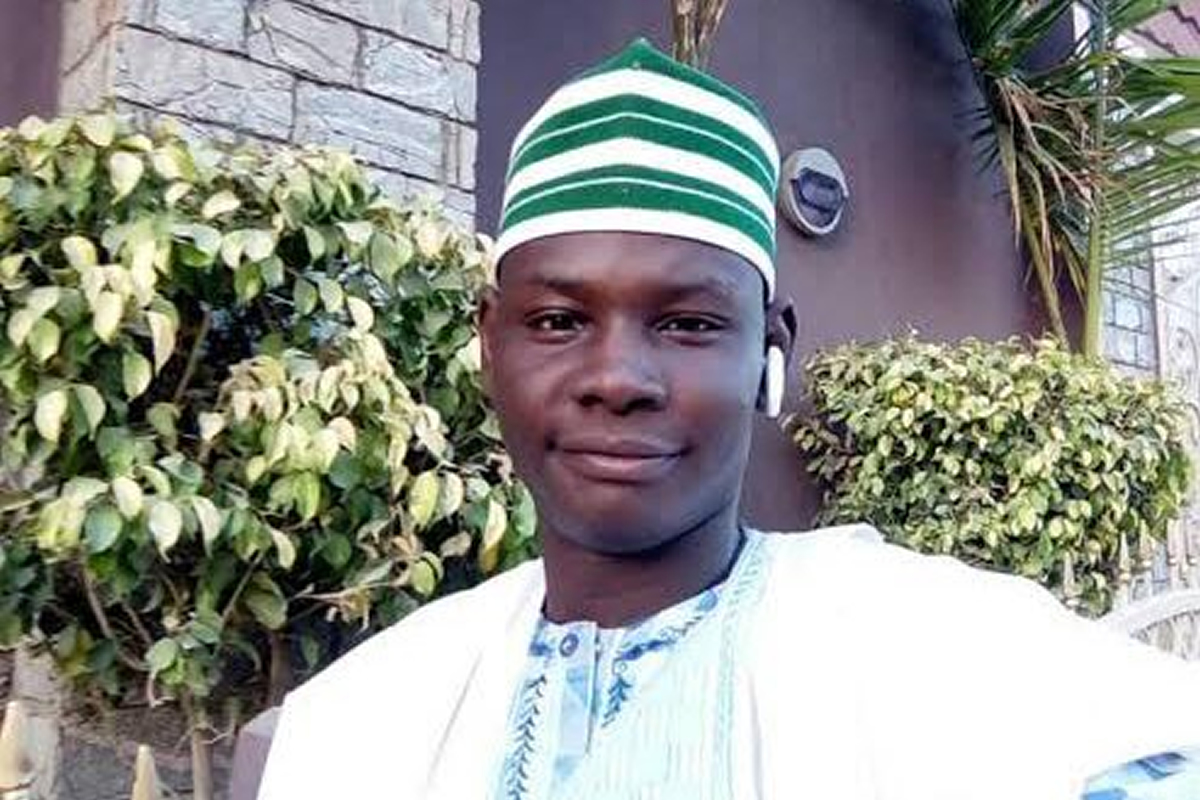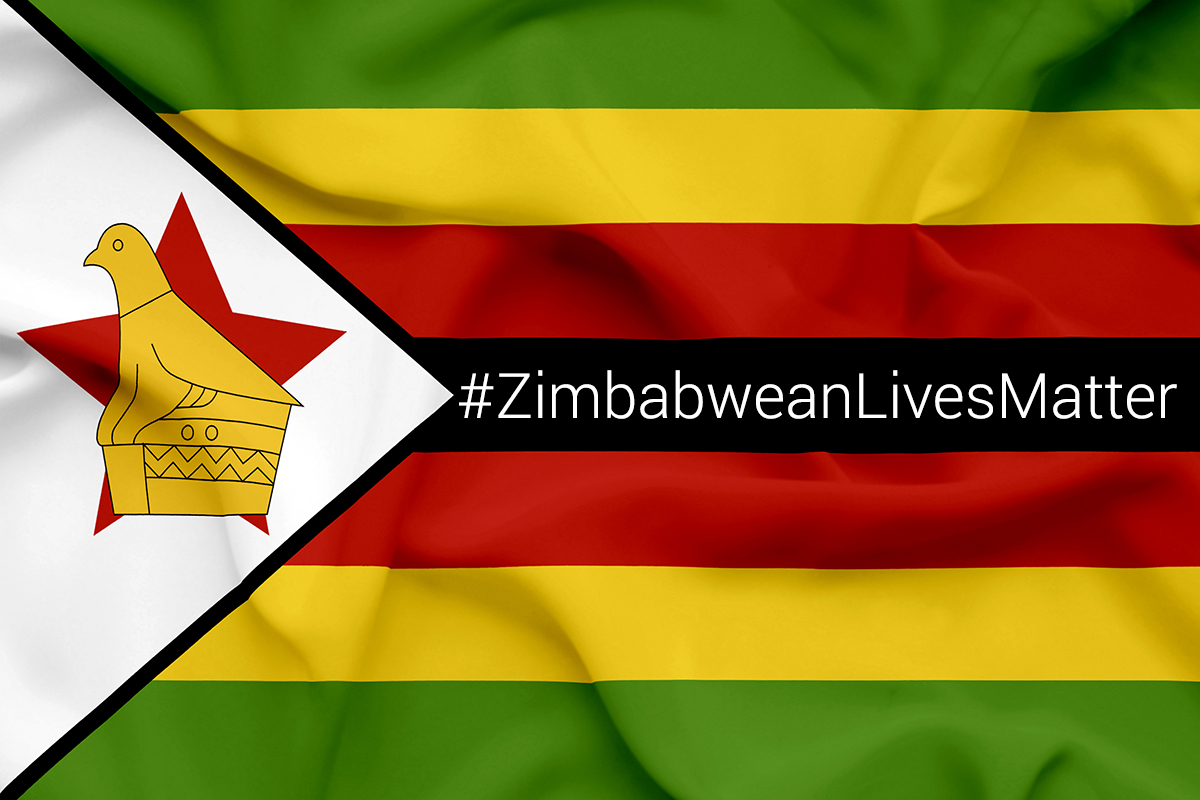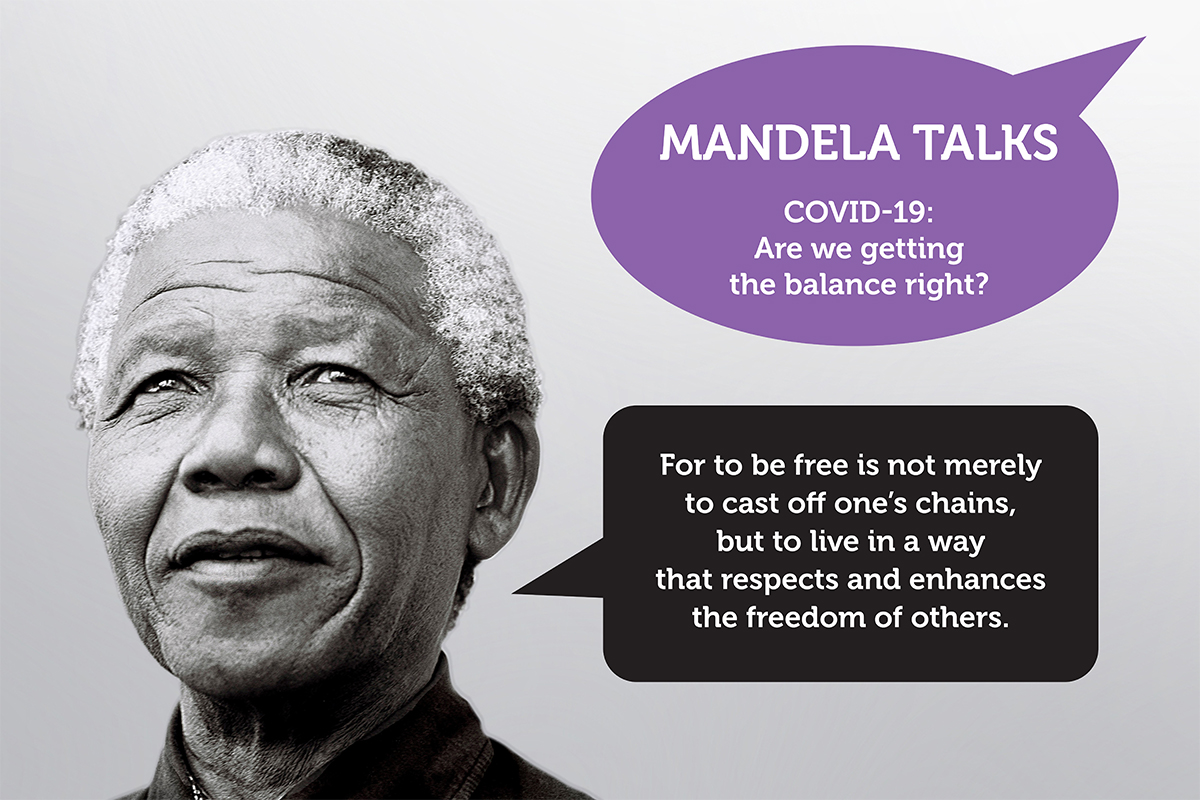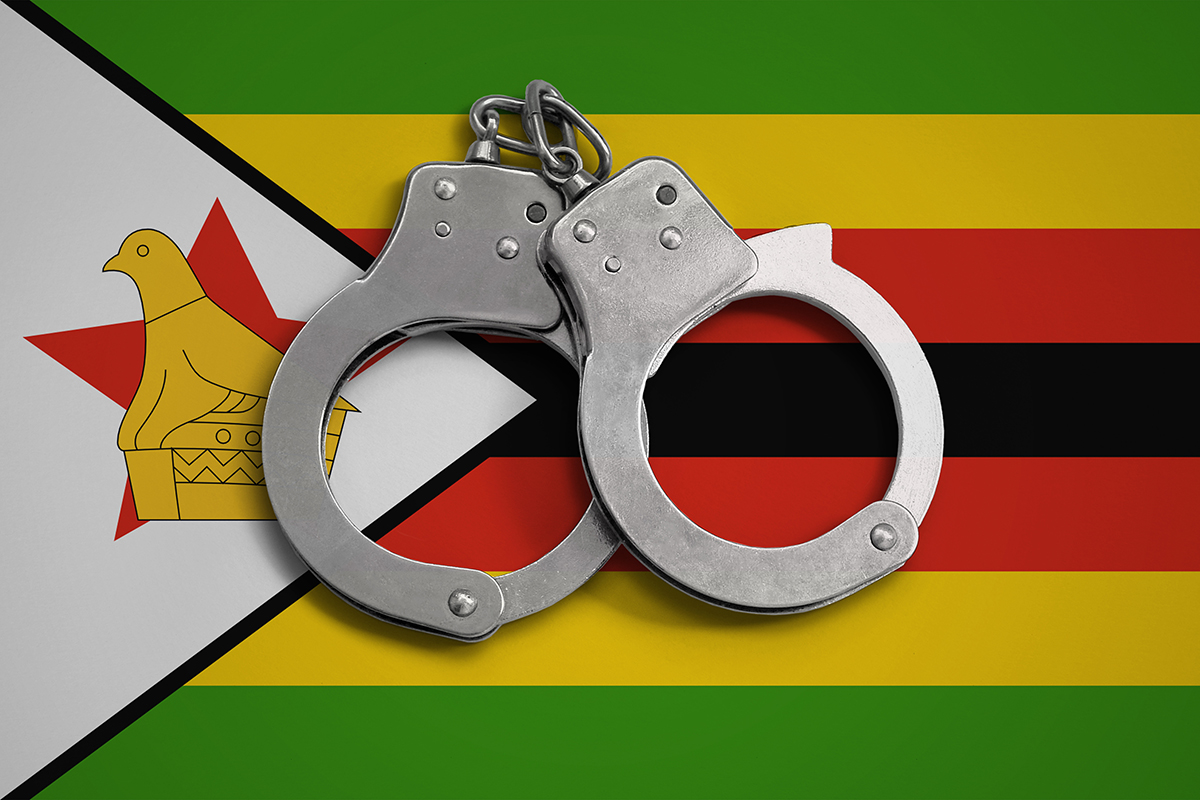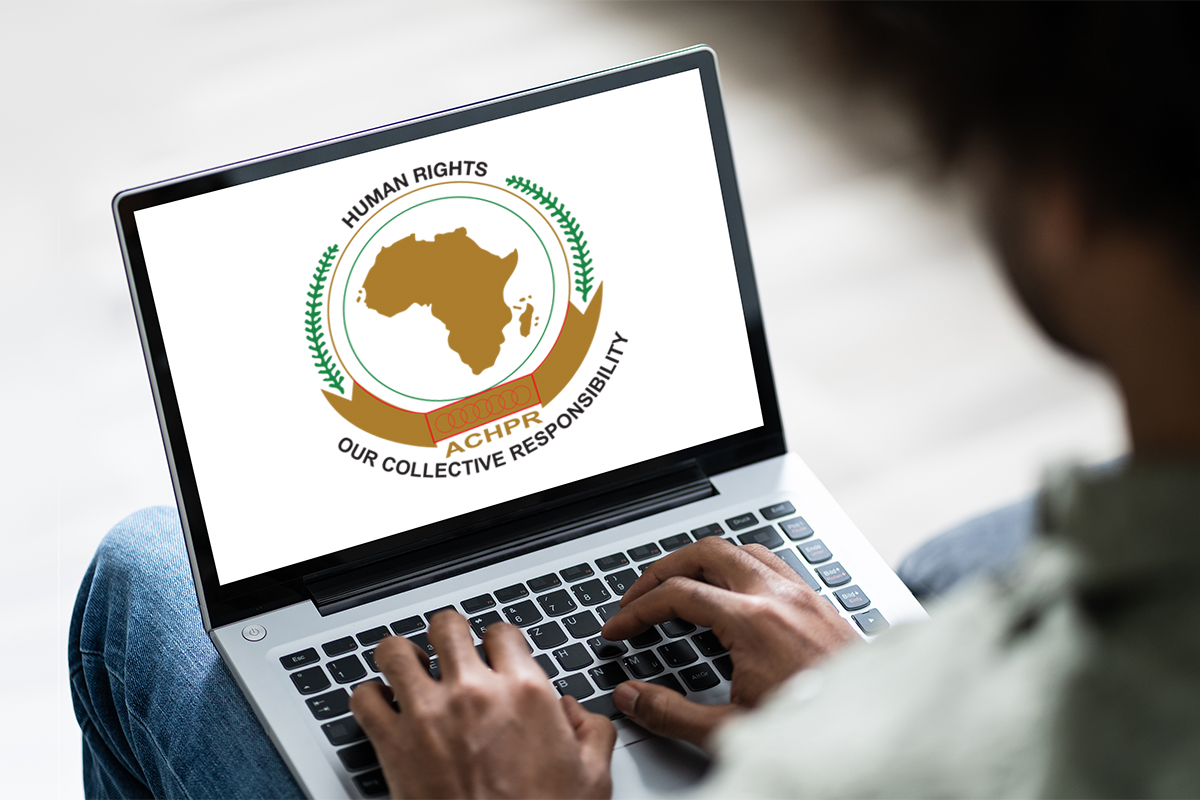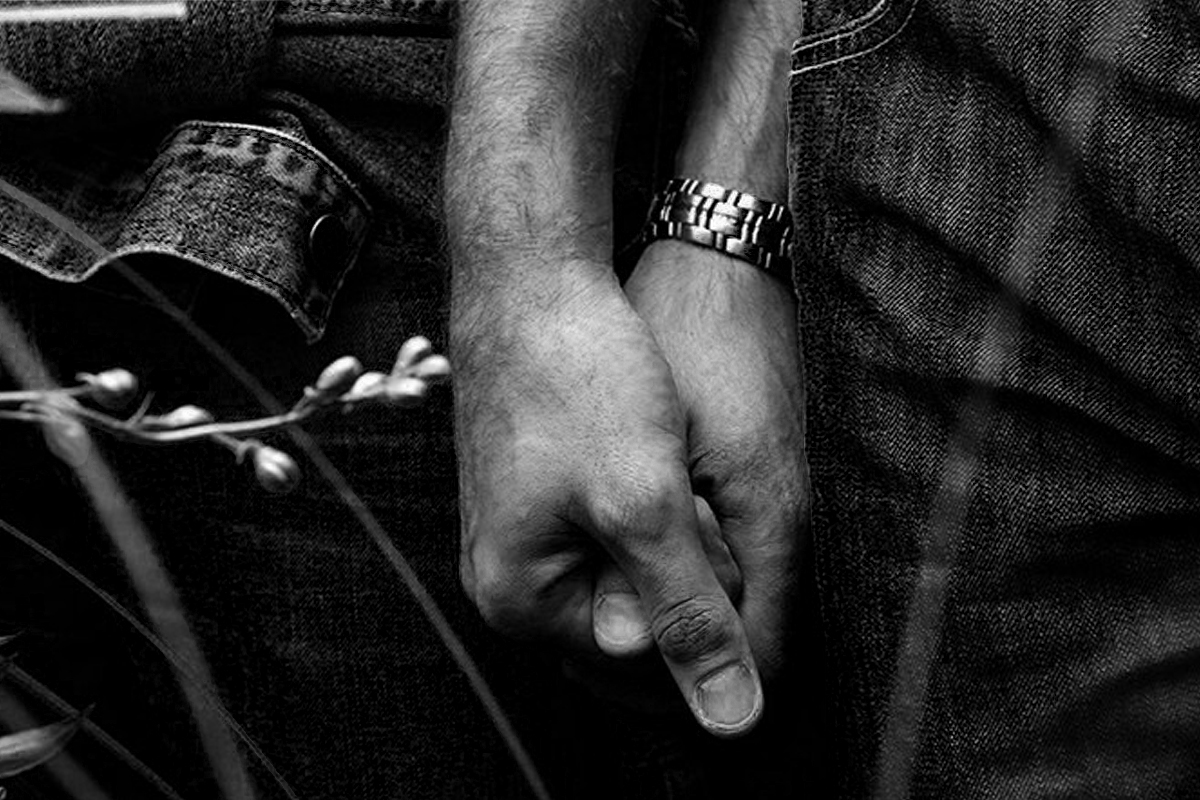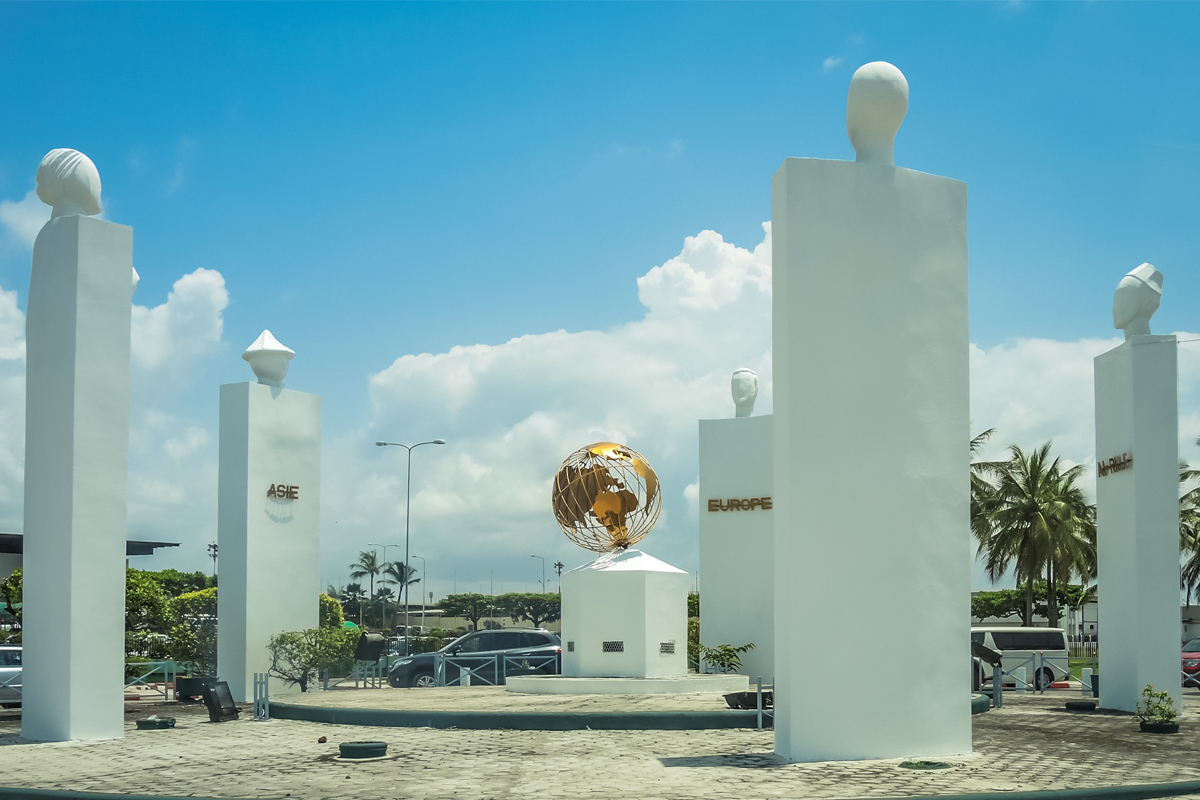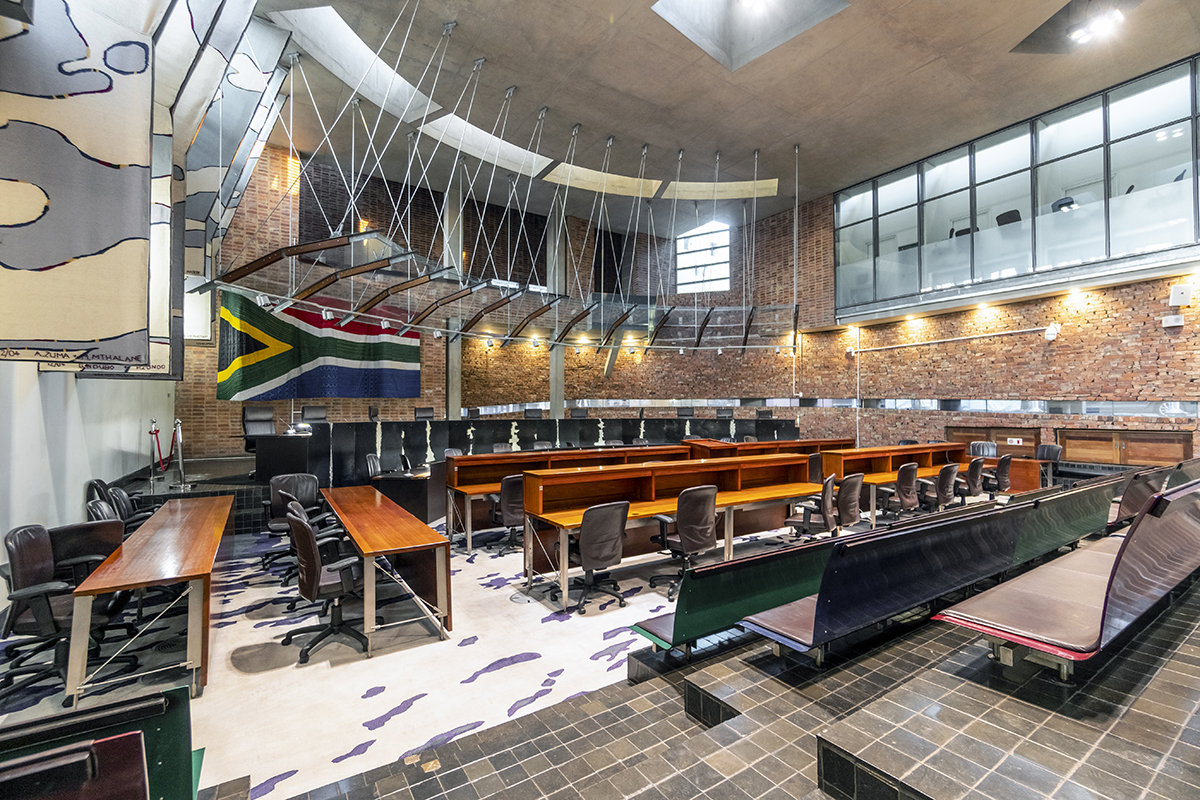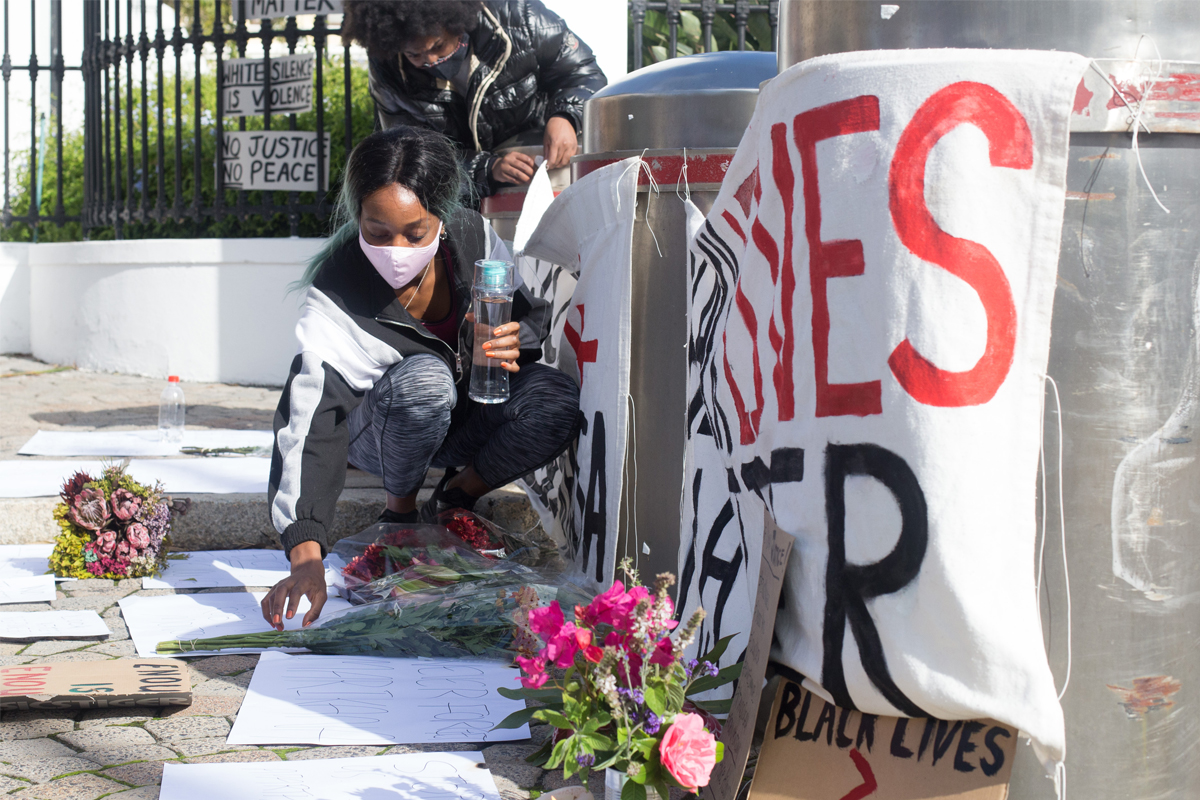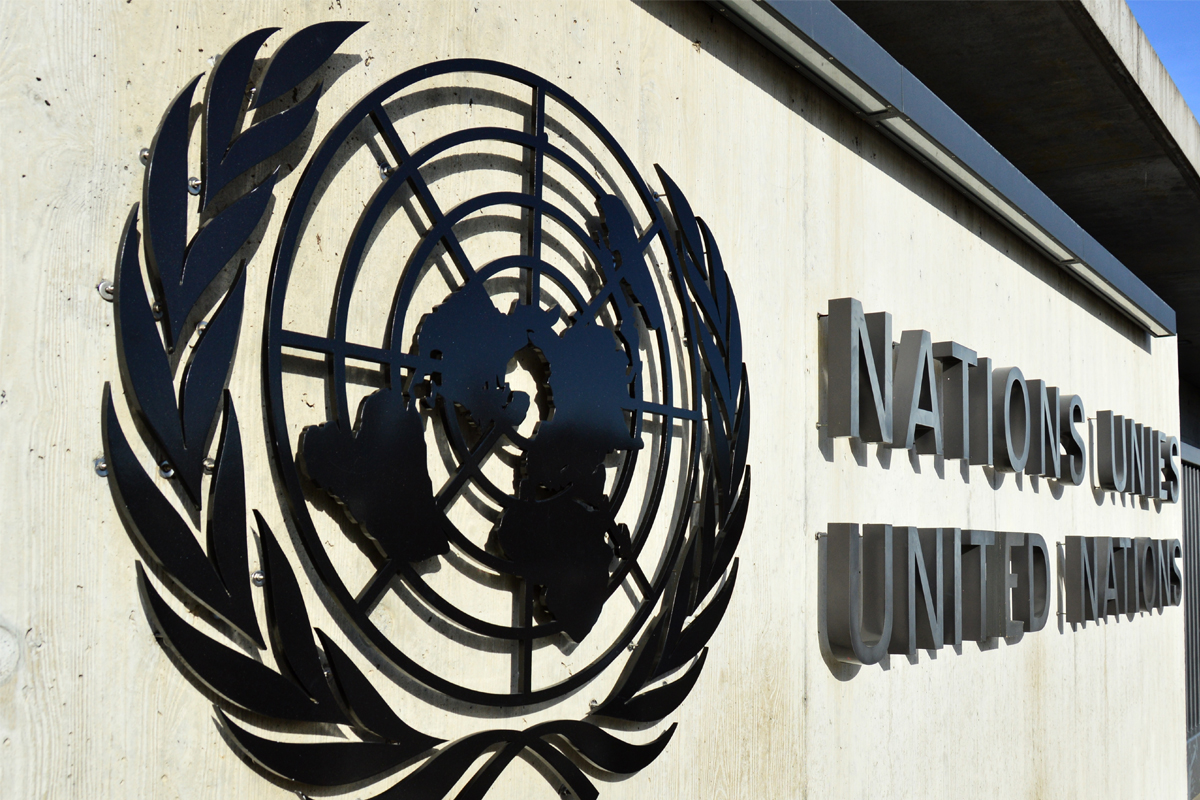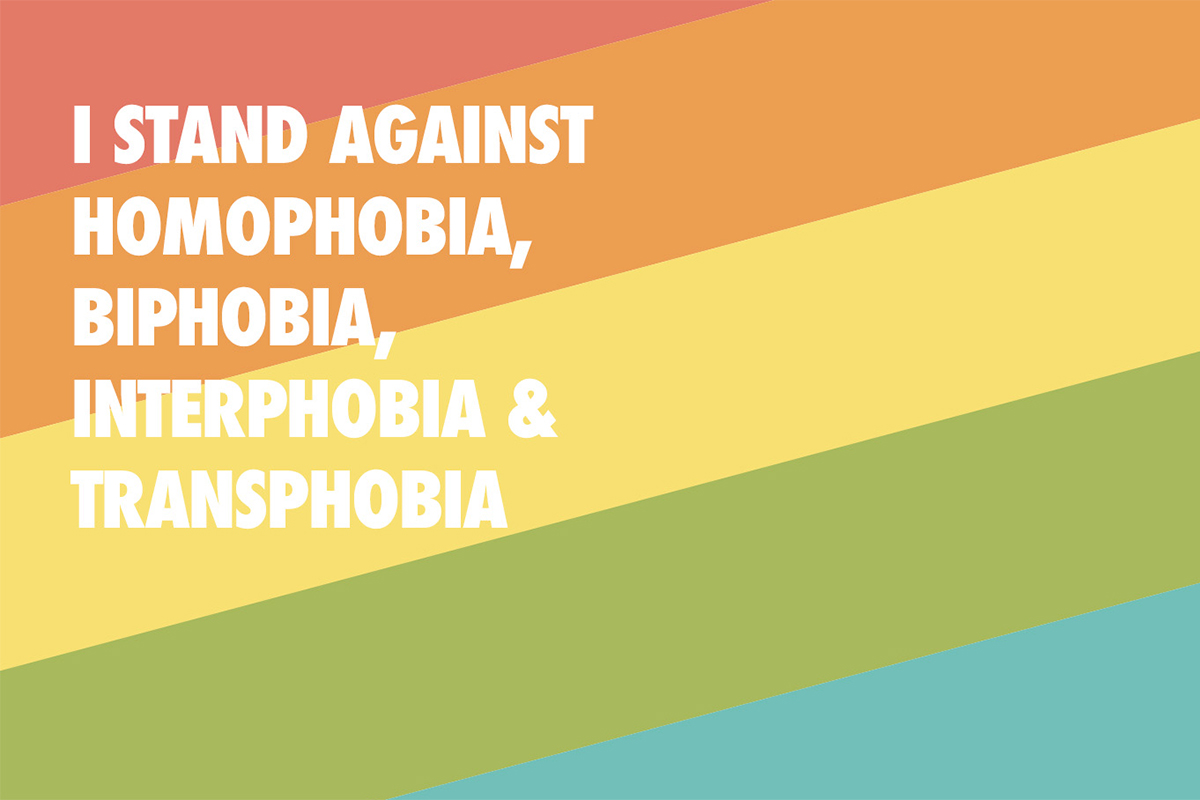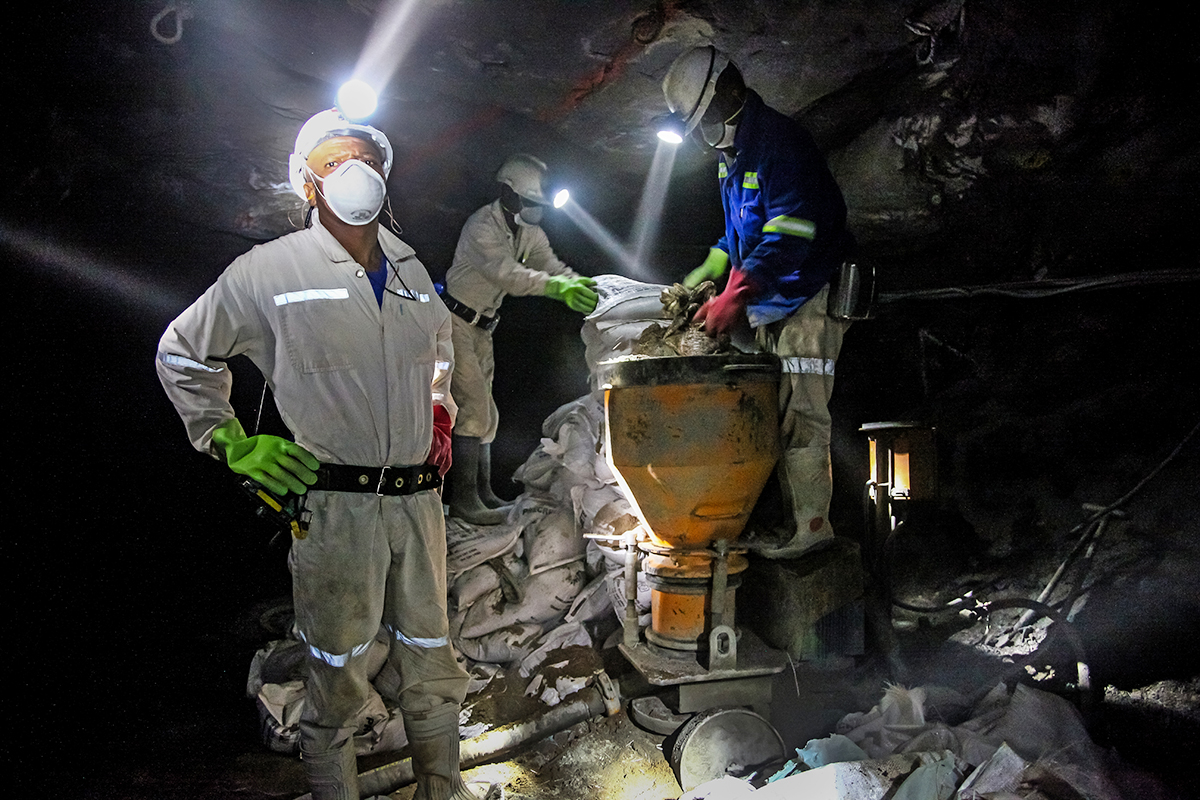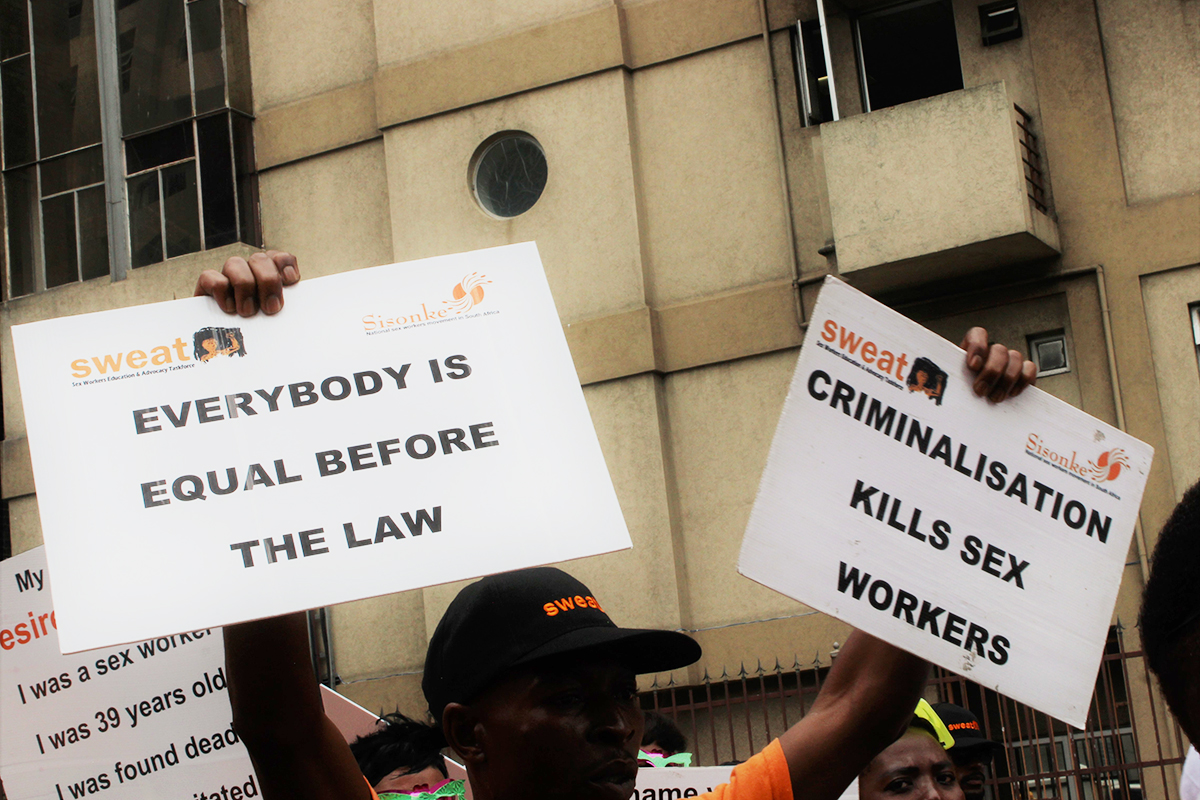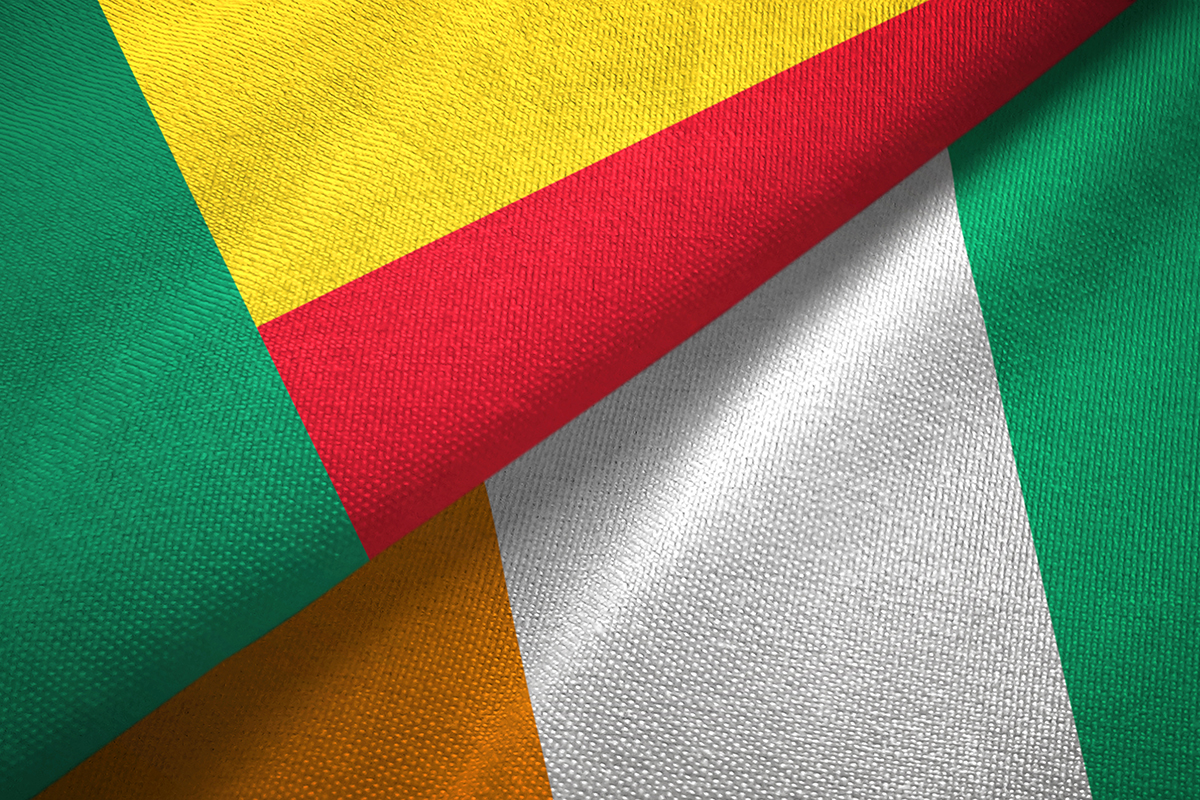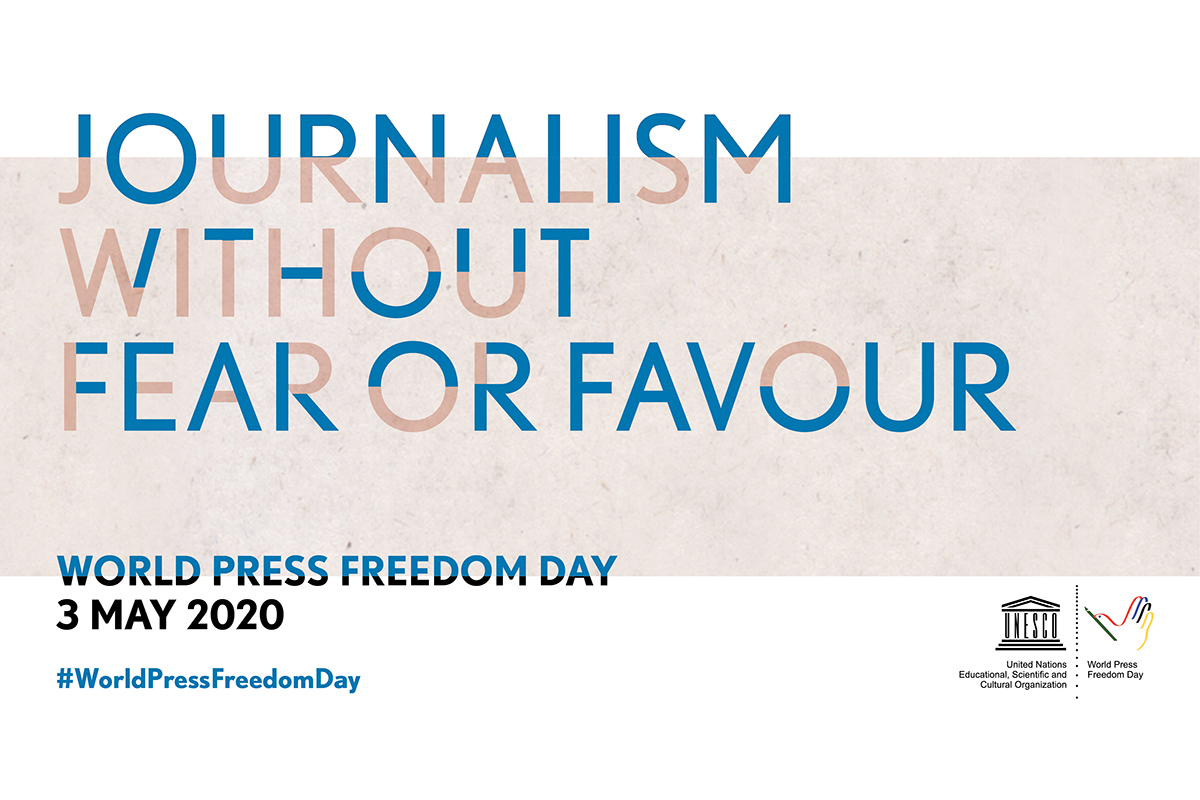- Details
The Centre for Human Rights, University of Pretoria, is concerned about ongoing police brutality and human rights violations in Nigeria. These violations are in response to demonstrations by Nigerians expressing concerns about gross human rights violations by the Nigerian Police Force (NPF), particularly by the Special Anti-Robbery Squad (SARS), a tactical unit within the NPF designed to tackle incidents of armed robbery in Nigeria.
- Details
This year's Nelson Mandela World Human Rights Moot Court Competition saw 44 teams (39 English-language and 5 Spanish-language teams) participating for the coveted eight quarter-finalists positions places. Although the Competition is open to French-language teams, regrettably, only two teams submitted its memorials (Ecole Superieure des sciences de Pierre Elliot Trudeau (Esseget) and Catholic University of Bakavu).
- Details
The Centre for Human Rights, University of Pretoria, is distressed by the march on 23 September 2020 against foreign nationals in the City of Tshwane (#PutSouthAfricansFirst). The marchers targeted Nigerians and Zimbabweans, in particular. While declaring that they are concerned about illegal migrants, the marchers spoke of ‘Nigerians’ and ‘Zimbabweans’ in a very general way. The march organisers in one breath expressed concern about illegal migrants and drug trafficking. By making this association between migrant status and drug trafficking, the marchers fell into the trap of generalisation and stigmatisation of all of these non-nationals as both illegal and criminal.
- Details
The Centre for Human Rights, Faculty of Law, University of Pretoria notes with disappointment the decision by the Swiss Federal Supreme Court to effectively ban Caster Semenya from participating in certain competitive sporting events (400m to the mile) unless she reduces her testosterone levels to ‘acceptable female’ levels. This decision follows an appeal by Caster to the Supreme Court against a decision by the Court of Arbitration for Sports (CAS), which upheld the validity of the World Athletics regulations on female athletes with differences of sex development (Eligibility Regulations on Female Classification (Athlete with Differences of Sexual Development). The CAS, based in Lausanne, Switzerland, is a private legal person under Swiss law. Its arbitration awards are subject to the appellate jurisdiction of the Swiss Federal Supreme Court.
- Details
With the passing of Advocate George Bizos on 9 September 2020, South Africa lost an exceptional human rights lawyer who devoted his life to the promotion and fostering of a human rights culture in South Africa. “His life demonstrates the best use to which the law can be put: as a tool to defend those at risk of abuse of power, and as a tool for social transformation and human connection’”, said the Director of the Centre for Human Rights, University of Pretoria, Frans Viljoen.
- Details
The Centre for Human Rights, Faculty of Law, University of Pretoria, has with alarm taken note of the precarious position and imminent risk of irreparable harm to the life of Nigerian singer Yahaya Sharif Aminu. The Centre on 9 September 2020 lodged a request to the African Commission on Human and Peoples’ Rights (African Commission) to take immediate action, in the form of directing an urgent appeal to the Head of State, or any other appropriate form.
- Details
The Centre for Human Rights, Faculty of Law, University of Pretoria, welcomes the appointment by President Ramaphosa of two special envoys to engage with the deteriorating conditions in Zimbabwe. However, we regret the characterisation of a situation of serious human rights violations as “difficulties”, and urge President Ramaphosa to ensure that South Africa’s approach is not one of “quiet diplomacy” at the expense of addressing the underlying issues of impunity and lack of accountability. Given that South Africa is currently chairing the African Union, it is of increased importance for President Ramaphosa to take a clear stand against erosions of constitutional governance and the rule of law, and to insist on accountability for violations of human rights in Zimbabwe.
- Details
As part of Mandela Month, during which we remember the birth date of Nelson Rolihlahla Mandela on 18 July 1918, the Centre for Human Rights, Faculty of Law, University of Pretoria, in collaboration with Leading Like Mandela Institute and the Thembekile Mandela Foundation, hosted the first in a series of online Mandela Talks.
- Details
The Centre for Human Rights calls on the African Commission through the Special Rapporteur on Freedom of Expression and Access to Information in Africa to urgently issue an appeal to the Zimbabwean government to respect and abide by its human rights obligations under the African Charter and other international law. This ongoing crackdown, if left unchecked, will cement the culture of impunity and entrench unwarranted arrests of journalists and human rights defenders. The Centre for Human Rights also takes this opportunity to impress upon the relevant authorities the need to respect constitutional provisions on media freedom and free expression and reiterates that journalism is not a crime, but a crucial element in the exercise of freedom of expression and an essential component of democracy that is also instrumental in fighting against corruption. Journalists and other media practitioners deserve protection.
- Details
The Centre for Human Rights made a statement on the human rights situation in Africa during the 66th Ordinary Session of the African Commission on Human and Peoples' Rights. The Centre has been enjoying observer status as NGO with the African Commission since 1993. The 66th session is the first Commission Session to take place virtually.
- Details
The Centre for Human Rights welcomes the passing of the Civil Union Amendment Bill by South Africa’s second legislative body, the National Council of Provinces (NCP). The Amendment Bill repeals section 6 of the Civil Union Act 17 of 2006 (CUA), which had provided that a marriage officer may, in writing, inform the Minister of Home Affairs that he or she objects to solemnising a civil union between persons of the same sex on the ground of conscience, religion, and belief. This provision had long been a barrier to the legal recognition of same-sex couples by marriage officers in the Department of Home Affairs.
- Details
The Centre for Human Rights welcomes the news that the legislature of the Gabonese Republic (‘Gabon’) has voted to pass a landmark bill to decriminalise homosexuality in the country. The amendment removes an ‘offence against morality’ provision in the Penal Code which prohibits ‘sexual relations between persons of the same sex’, stipulating up to six months in prison and a fine of five million CFA francs (about US$8,600) for anyone found guilty.
- Details
The South African Constitutional Court’s recent judgment requiring Parliament to amend the Electoral Act is remarkable for two reasons. In this judgment, the Court for the first time ever placed reliance on a judgment of the African Court on Human and Peoples' Rights. This hopefully marks the beginning of a continuous dialogue between the highest South African and African Union courts. Through this judgment, the Court has set a process in motion that would see the end of the closed party-list proportional representation to the national and provincial legislatures. This is a welcome development, and provides an opportunity not only to expand citizen participation in the electoral process, but also in the drafting of the new Electoral Act.
- Details
The Centre for Human Rights, Faculty of Law, University of Pretoria, notes with grave concern the instances of death and other human rights violations due to excessive force during law enforcement in South Africa. We note that these are not isolated instances, but are linked to inequalities based on race.
“The disturbingly high rate of arrest-related deaths, and its structural causes, in particular as far as it relates to racial inequalities, must be investigated and addressed with great urgency and seriousness”, said Frans Viljoen, the Centre’s Director.
- Details
As governments attempt to tackle the unprecedented public health and economic crises caused by the COVID-19 pandemic, we are deeply concerned that women and girls are suffering even more egregious violations of their human rights. In the absence of gender-sensitive intersectional responses, different forms of systemic discrimination already faced by women and girls will be exacerbated. The dramatic increase in women’s caregiving responsibilities, the rise in what was already an epidemic of sexual and domestic violence, the continued feminization of poverty, the proliferation of barriers to healthcare, especially pregnancy-related healthcare, will profoundly jeopardize women’s safety and well-being, economic security, and participation in political and public life, both during and after the pandemic. The measures taken by governments to mitigate the risks to health and life posed by COVID-19 must take into account the specific attributes and circumstances faced by women and girls. These include, but are not limited to their sex, gender, age, disability, ethnic origin, and immigration or residence status. States must refrain from any action that will exacerbate the already disproportionate economic and social impact of this pandemic on women and girls.
- Details
The Centre for Human Rights and the Centre for Sexualities, AIDS and Gender (CSA&G), recognise, support, and commemorate the International Day Against Homophobia, Biphobia and Transphobia (IDAHOBIT). This annual event, observed on May 17, is marked internationally for the recognition of LGBTIQ+ rights. In particular, it is used to raise awareness and educate the public on issues of violence, discrimination, repression, and also to call attention to the health challenges that detract from the progress and wellbeing of the LGBTIQ+ community all over the world.
- Details
The Centre for Human Rights, University of Pretoria and the Southern African Miners Association (SAMA) (comprised of the undersigned organisations), are gravely concerned by the recently published SADC Regional COVID-19 Response Report – Bulletin 2 which omitted to set out clear guidelines on how older persons right to health should be protected during national lockdowns. This is particularly alarming considering the vulnerability of older persons to COVID-19. This susceptibility is further heightened for older persons who used to work in the mines with pre-existing occupational lung diseases and weakened immune systems due to ageing. Without a clear regional response that involves working together across communities, organisations and countries, which targets the protection of the most vulnerable, the spread and minimisation of the virus cannot be suppressed.
- Details
The Centre for Human Rights, University of Pretoria, together with the Sex Workers Education & Advocacy Taskforce (SWEAT) and Sisonke is deeply concerned about the ongoing discrimination against sex workers in South Africa in response to the COVID-19 crisis and calls on the government to take urgent measures to extend its COVID-19 palliative measures to sex workers in need.
- Details
The Centre for Human Rights, University of Pretoria, is deeply concerned about the recent decisions by the Governments of the Republic of Benin and Côte d’Ivoire to no longer allow individuals and NGOs to take cases directly to the African Court on Human and Peoples’ Rights. Almost all cases decided by the African Court so far have been submitted by individuals. Reducing this form of access to the African Court, impedes the establishment of the Court as a legitimate continental institution that entrenches the principles of accountability based on the rule of law. Our concern is exacerbated by the fact that that these decisions have been taken in a context of increased hostility towards the human rights bodies established under the African Union and decreasing support for their mandates.
- Details
As the world commemorates the World Press Freedom Day, the Centre for Human Rights, University of Pretoria, commends the African Commission on Human and Peoples’ Rights for making available the revised Declaration of Principles of Freedom of Expression and Access to Information in Africa at a time when the world has been plunged into a global health crisis, COVID-19. The current Declaration replaces the 2002 Declaration of Principles of Freedom of Expression in Africa. The revision was undertaken by the Special Rapporteur on Freedom of Expression and Access to Information (Special Rapporteur) against the backdrop developments in the developments that have taken place in the context of freedom of expression, access to information.

